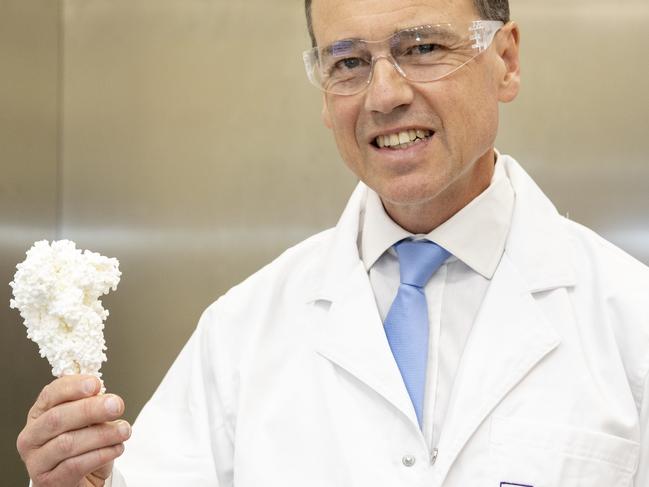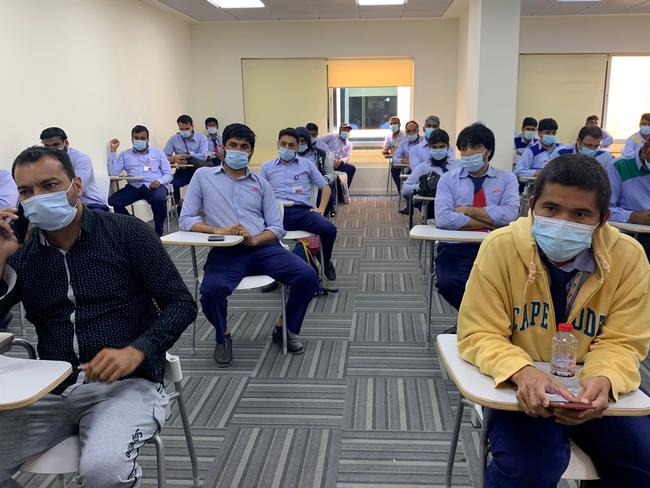How to make a booking to get a COVID-19 jab
A select group of GPs will be involved in the first stage of the COVID-19 vaccine program. See how to find them and make an appointment.
Coronavirus
Don't miss out on the headlines from Coronavirus. Followed categories will be added to My News.
Exclusive: Six million Australians will be able to book a GP appointment for their COVID-19 vaccination within days.
A list of the limited number of GP clinics approved to provide the jabs from March will be posted on the federal government’s Healthdirect website, a spokesman for Health Minister Greg Hunt told News Corp Australia.
The website will also provide an eligibility checker so you can figure out if you are in line for the current stage of the vaccine rollout.
The website will list the contact details for clinics so patients can phone to make an appointment or they can book through an online booking system if the clinic uses such a service.
If a patient requires help in locating a suitable clinic they can contact the National Coronavirus Hotline 1800 020 080 for support.

More than 600,000 doses of the Pfizer vaccine will be delivered in the next six weeks and two million doses of AstraZeneca’s vaccine will be available before the end of March.
Almost 680,000 frontline quarantine and health workers will begin receiving their vaccinations on Monday from state government run hubs, while aged care residents will get a vaccination in their facility.
The federal government has forecast this entire group will be vaccinated within six weeks and that four million Australians will have received their first jab by early April.
From March GPs will begin providing the shots to an expanded population group including those aged over 70, those with an underlying health condition and police, fire and emergency workers.
There are an estimated six million Australians in this category.
To get an appointment patients will need to provide some proof to the GP clinic that they are eligible to receive the vaccine.
This could include a letter from their employer proving they work for police or emergency services or the health system.
If they have an underlying health condition that entitles them to the vaccine they will need a letter from their regular GP explaining the condition or proof of the condition on their My Health Record.
The health conditions covered include: an organ transplant, use of immune suppressive therapy, a bone-marrow transplant in the last 24 months, graft versus host disease, blood cancer eg leukaemia, lymphoma or myelodysplastic syndrome (diagnosed within the last five years), are having chemotherapy or radiotherapy.
Older Australians may need some proof of age such as a drivers licence.
Aboriginal and Torres Strait Islanders aged over 55 are also included in this priority vaccination group but they will not need any documentation to prove their origin.
Instead every patient will be asked if they are of Aboriginal and Torres Strait Islander origin “and then we take the answer at face value because, again, we don’t know the context or the history of the person in front of us, and we cannot assess someone’s originality,” Dr Lucas de Torca, Acting First Assistant Secretary of the Federal Department of Health told GPs this week.
Later in the rollout when more doses of vaccines are available some states are expected to establish mass vaccination sites where people can queue to get a jab as happened in Israel which has vaccinated 75 per cent of its population.

Worldwide the rollout of over 186 million COVID-19 vaccines is already making a difference.
The World Health Organisation said this week new cases had dropped 16 per cent and deaths had fallen by 10 per cent worldwide.
Israel is leading the world and has so far provided at least one dose of the two dose Pfizer vaccine to 75 per cent of its citizens.
Early data from Israel’s Ministry of Health shows the Pfizer jab is preventing 94 per cent of symptomatic infections and almost all cases of serious illness including in the over-70s.
Nearly 90 per cent of people aged 60 and over have been vaccinated and there was a 41 per cent drop in confirmed COVID-19 infections in that age group, and a 31 per cent drop in hospitalisation.
In the US where over 1.6 million vaccines are being provided every day the number of new cases has fallen by 24 per cent in the past week.
However, as well as vaccines experts argue mask wearing, social distancing and fewer tests for COVID-19 could also be playing a role in the decline in cases.
Originally published as How to make a booking to get a COVID-19 jab



